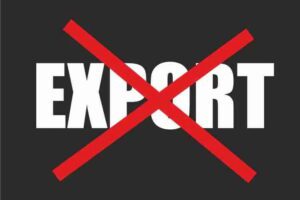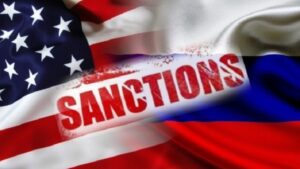
The Ukrainian mobile operators Kyivstar, Vodafone Ukraine and Lifecell have realized the opportunity to use mobile Internet within national roaming.
According to the joint message of the companies, distributed on Sunday, now subscribers can use not only voice calls and SMS, but also mobile 2G/3G Internet at speeds up to 512 kbps to exchange messages in instant messengers or search for information on the Internet.
National roaming allows you to connect to the network of another if the connection of one operator is lost.
“At the moment, the availability of mobile Internet is no less important than calls, because it allows you to keep in touch with loved ones online and check the latest news. At the same time, the tariffing of services in national roaming is maintained in accordance with the tariff plan of the operator whose services the subscriber uses,” the report says.
Roaming works automatically for Lifecell subscribers. If there is no connection to the network of another operator, manual settings must be made.
Kyivstar and Vodafone Ukraine subscribers can use this option by making manual settings on their smartphone and disabling auto network selection.
As noted in the message, if registration failed, you need to try again or select another network.
It is also important for subscribers to try daily to return (connect) to the network of their operator manually or by turning on automatic network selection.

The government has provided an opportunity for enterprises to pay wages from blocked bank accounts, Minister of Justice Denys Maliuska said on Facebook.
The corresponding order of the Cabinet of Ministers No. 212 of March 11 was published on its website on Saturday.
According to it, legal entities – debtors for the period of martial law are allowed to make debit transactions from accounts, the funds on which are seized by the state executive service, private executors, to pay salaries in the amount of not more than five minimum monthly wages per employee.
In addition, the document allows to pay taxes, fees and a single contribution for obligatory state social insurance from these accounts.
“The verification of compliance with the requirements of this order when making payments is entrusted to officials of the legal entity – the debtor. This order is valid until the termination or cancellation of martial law,” the document states.

Negotiations between Ukraine and the Russian delegation continue uninterrupted in video format, special working subgroups have been established, adviser to the head of the Office of the President of Ukraine Mykhailo Podoliak said.
“Negotiations with the Russian delegation are now ongoing in a continuous video format. Special working subgroups have been created. Ukraine’s positions are determined by the previous directives,” Podoliak said on Twitter, attaching a joint photo with Head of the President’s Office Andriy Yermak.

The Government of Ukraine introduces a ban on the export of fertilizers from Ukraine, Minister of Agrarian Policy Roman Leschenko said on Facebook.
“In connection with the martial law, in order to maintain balance in the domestic market of significant mineral fertilizers, the government introduces a zero quota for their export. That is, a de facto ban on the export of fertilizers from Ukraine,” he said.
Leschenko said that this applies to nitrogen (TN VED code 3102), phosphorus (TN VED code 3103) and potassium (TN VED code 3104) mineral or chemical fertilizers.
According to him, this list also includes complex fertilizers – containing two or three nutrients: nitrogen, phosphorus and potassium; other fertilizers; goods of this group in tablets, packages with a gross weight of not more than 10 kg (TN VED code 3105).
“I emphasize that this ban is of forced and temporary nature and is used to restore the balance of certain goods in the domestic market and ensure the sowing campaign, which is extremely important in order to prevent a food crisis in Ukraine and the world,” the head of the Ministry of Agrarian Policy said.
As reported, a few days earlier, the government added fertilizers to the list of critical imports, for the purchase of which it is allowed to buy foreign currency.

President of Ukraine Volodymyr Zelensky said that the Verkhovna Rada should immediately abolish the value added tax and excise tax on fuel.
He noted that the Cabinet of Ministers has already taken several very important decisions. In particular, the complete abolition of value added tax and excise tax on fuel (gasoline and diesel) was agreed upon.
According to the head of state, this is being done not only in the context of the upcoming sowing campaign, but also based on the needs of all citizens.
“So that there is no shortage of fuel in the country and prices are stable. The government has done its part of the work. Now it is up to the MPs. They must immediately support this decision with their vote,” Zelensky said in a video message on Saturday.

The United States bans the supply of luxury goods to Russia, complicates the purchase of expensive goods for oligarchs in the country, U.S. President Joe Biden said on Friday.
Referring to the measures against representatives of major Russian businesses, Biden said the U.S. Administration is also going to make it harder to buy luxury goods in the United States for Russians.
“We’re banning export of luxury goods to Russia,” the U.S. president said.
He also said that new names of billionaires from Russia and their families will be included to the U.S. sanctions lists.
In addition, this decision also applies to Belarus. The U.S. Department of Commerce released a statement saying that its Bureau of Industry and Security has imposed restrictions on the export, reexport and transfer (in country) of luxury goods to all end users in Russia and Belarus, as well as to certain “Russian and Belarusian oligarchs.”
This decision is expected to come into force on March 11.